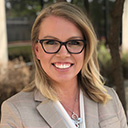Oncology Nurse Navigators

Get Early Cancer Screening Programs for Prevention
Most cancers start with abnormal cells growing out of control. Sometimes you will experience symptoms, but often you will not. That is why regular early cancer screening programs and self-examinations are so important. Finding and treating cancer in its earlier stages is much easier, and potentially life-saving, than waiting until the cancer has spread to other parts of the body.
In 2017, there were an estimated 1,688,780 new cancer cases diagnosed and 600,920 cancer deaths in the U.S. Cancer remains the second most common cause of death in the U.S., accounting for nearly 1 of every 4 deaths. Screening tests are available for many forms of cancer, including colorectal, breast, cervical and prostate.
Early Cancer Screening Programs for Men and Women
Both men and women are encouraged to undergo colorectal cancer tests beginning at age 50 (or earlier if they have risk factors for developing the disease). Screening tests for colorectal cancer include:
- Stool tests, which tests for blood in the stool
- Flexible sigmoidoscopy, which allows the doctor to check the rectum and lower part of the colon
- CT Colonography (Virtual Colonoscopy), which uses an X-ray to find abnormal spots
- Colonoscopy, which allows the doctor to examine the entire colon
Screening for Women
There is a current debate in the United States over the best time to begin screening mammograms for breast cancer. The U.S. Preventive Services (USPTF) has recommended that the biennial screening mammography for women should be done between the ages of 50 to 74 years. The recommendation among other health experts has not changed, including the American Cancer Society and the American College of Surgeons.
They continue to recommend that women should begin having annual mammograms at age 40, or earlier if they are at higher risk. The decision about when to start regular, biennial screening mammography should be a result of your individual discussion with your physician. Monthly self exams help women know the normal state of their breasts.
Another screening recommended for women is a Pap test to detect pre-cancerous cells in the cervix or cervical cancer. The test should be done at least every three years between ages 21 and 29, and at least every five years from age 30 to 65. After age 65, women who have had normal results in the past may no longer need screenings. Treatment is available to prevent cervical cancer from developing or when it is found early.
Cancer Screening for Men
Men can be screened for prostate cancer as early as age 40 if they are at high risk for developing the disease. Having a first-degree relative with prostate cancer or being African-American may increase a man’s chances of having prostate cancer. Screening for the condition may include a digital rectal exam or a prostate-specific antigen blood test. Men also are encouraged to examine their testicles on a routine basis to check for testicular cancer. Any lump or swelling should be reported to a physician as soon as possible. Testicular cancer is not common, but it is one of the most treatable forms of cancer.
Screening recommendations can vary for different cancers and depend on the patient’s medical history, family history and lifestyle. Doctors may advise patients to be screened regularly or at a younger age if they are inactive, use tobacco products, drink alcohol or eat a high-fat diet. For more information about cancer screenings, talk with your doctor.


